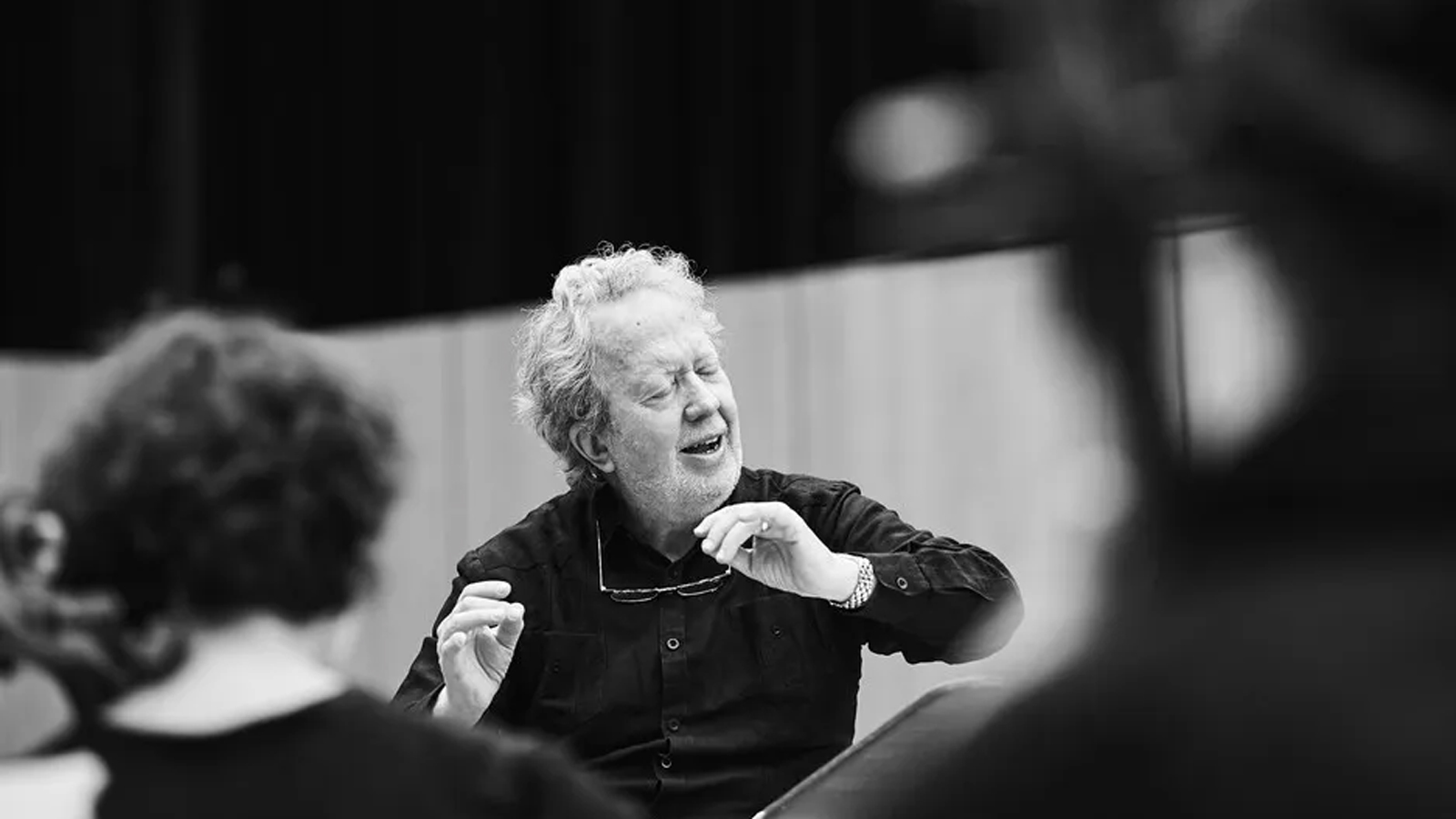Romeo and Juliet
Gulbenkian Choir and Orchestra
Event Slider
Date
- / Cancelled / Sold out
Location
Grand Auditorium Calouste Gulbenkian FoundationPricing
50% – Under 30 years old
15% – Over 65 years old
- Conductor
- Mezzo-soprano
- Tenor
- Baritone
-
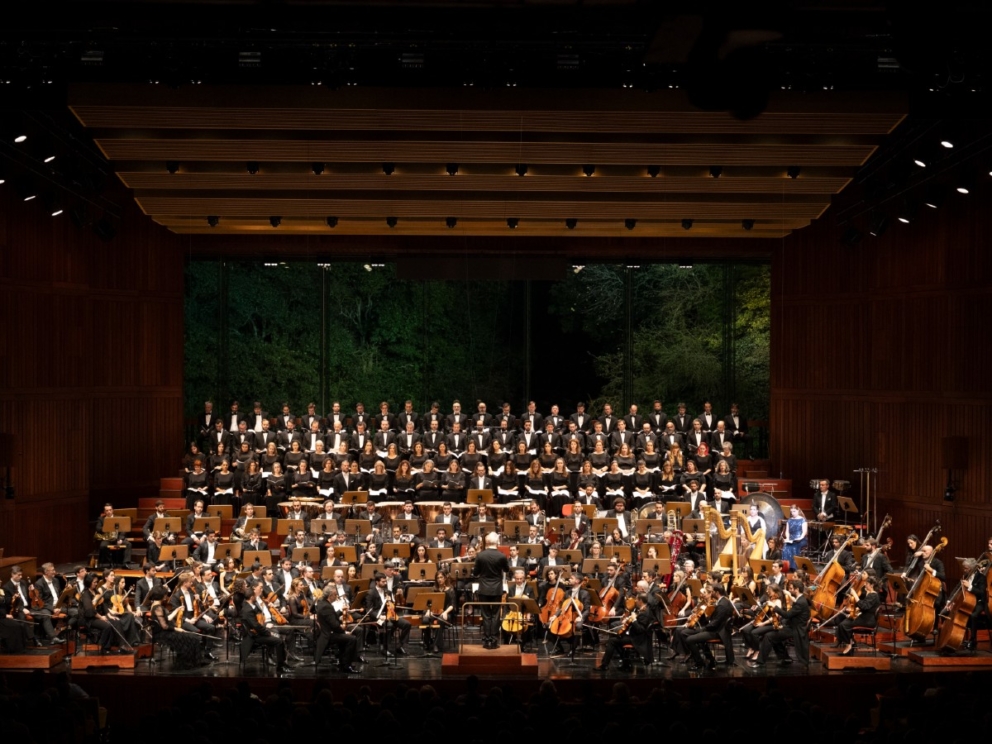
Gulbenkian Choir
Coro Gulbenkian was founded in 1964 by the Calouste Gulbenkian Foundation as a full symphonic body of around 100 singers. The choir joins the Orquestra Gulbenkian and other orchestras to perform Classical, Romantic and Contemporary choral-symphonic repertoire, but can also perform a cappella. It has performed – and often premiered – many 20th century works by Portuguese and international composers.
Coro Gulbenkian has been invited to collaborate with major international orchestras, under the direction of conductors such as Claudio Abbado, Colin Davis, John Nelson, Emmanuel Krivine, Esa-Pekka Salonen, Frans Brüggen, Franz Welser-Möst, Gerd Albrecht, Michael Gielen, Michael Tilson Thomas, Rafael Frübeck de Burgos, René Jacobs and Leonard Slatkin, among others.
Besides its regular season of concerts in Lisbon and frequent national tours, Coro Gulbenkian has repeatedly toured Argentina, Belgium, Brazil, Canada, Denmark, France, Germany, Hungary, India, Iraq, Israel, Italy, Japan, Macao, Malta, Monaco, Netherlands, Spain, the United Kingdom, the United States of America and Uruguay.
Coro Gulbenkian has recorded extensively for Philips, Deutsche Grammophon, Erato, Cascavelle, Musifrance, as well as FNAC-Music, performing a wide range of repertoire, from Early-Renaissance polyphony to Xenakis. Several of these albums received international awards.
Michel Corboz was the Principal Conductor between 1969 and 2019. Jorge Matta and Inês Tavares Lopes are currently the Associate and Assistant conductors, respectively.
-
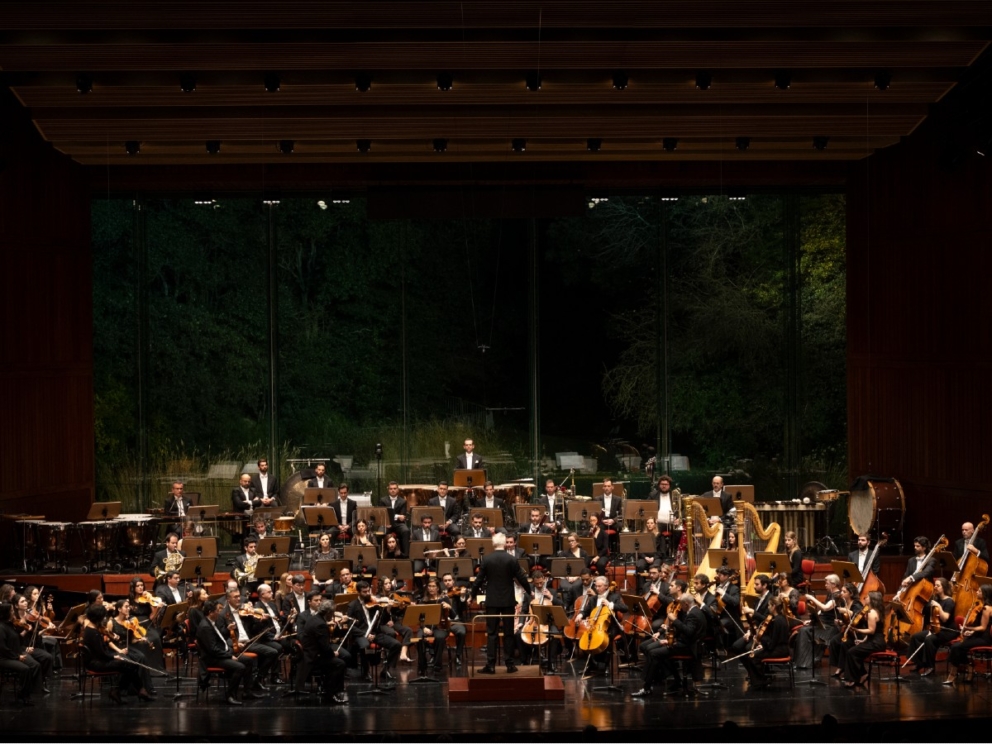
Gulbenkian Orchestra
In 1962, the Calouste Gulbenkian Foundation decided to establish a permanent orchestral ensemble. Originally with only twelve musicians (strings and continuo) it was named “Orquestra de Câmara Gulbenkian”. This collective was successively enlarged and today the “Orquestra Gulbenkian” (the name it has adopted since 1971) has a permanent body of sixty instrumentalists, a number that can be expanded depending on the repertoire.
This structure allows the Gulbenkian Orchestra to interpret works from the Baroque and Classical periods, a significant part of 19th century orchestral literature and much of the music of the 20th century, including works belonging to the current repertoire of the traditional symphonic orchestras. In each season, the orchestra performs on a regular series of concerts at the Gulbenkian Grand Auditorium in Lisbon, where it has had the opportunity of working together with some of leading names of the world of music (conductors and soloists). It has also performed on numerous locations all over Portugal, in an effort to decentralize music and culture.
The orchestra has been constantly expanding its activities in the international level, performing in Europe, Asia Africa, and the Americas. In the recording field, Orquestra Gulbenkian is associated to labels as Philips, Deutsche Grammophon, Hyperion, Teldec, Erato, Adès, Nimbus, Lyrinx, Naïve and Pentatone, among others, and this activity was recognized with several international prizes.
-
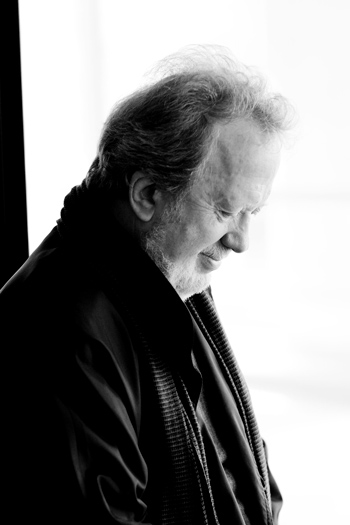
John Nelson
Conductor
Grammy Award-winning conductor John Nelson is recognised worldwide as one of America’s most eminent conductors, as well as the leading living interpreter of the music of Hector Berlioz. In 2018, Nelson stole headlines the world over by way of outstanding critical reception to his complete recording of Berlioz’s Les Troyens. Recorded for Warner Classics/Erato with the Orchestre philharmonique de Strasbourg, and a star-studded vocal cast (including Joyce DiDonato, Marie-Nicole Lemieux, and Michael Spyres), the recording met with universal acclaim – amassing such acolades as the BBC Music Magazine’s ‘Award for Opera’, the International Opera Award. It was also hailed by Gramophone Magazine not only as ‘Opera Recording of the Year’, but also ‘Recording of the Year’, and ‘Recording of the Decade’ by The Sunday Times – proudly reinforcing Nelson’s work and authority as the world’s leading Berlioz specialist. The outstanding success of Les Troyens has been followed by further large-scale Berlioz recording projects and special events. Amongst these – La Damnation de Faust (2019), Harold en Italie & Nuits d’Eté (2021), and Roméo et Juliette (2022), again partnered by the Orchestre Philharmonique de Strasbourg. To mark the 150th anniversary of Berlioz’s death, Nelson led a performance of Berlioz’s Requiem (2019) – in London’s iconic St. Paul’s Cathedral – broadcast by Medici.tv, and performed/recorded with London’s Philharmonia Orchestra and Chorus, which was described by The Telegraph as “a brilliant recording of one of the greatest pieces ever written”. The 2023/2024 concert season sees such highlights as returns to Indianapolis (Indianapolis Symphony Orchestra), Lisbon (Gulbenkian Orchestra), Rome (Accademia Nazionale di Santa Cecilia), and Strasbourg (Orchestre Philharmonique de Strasbourg), alongside the release of two major recording projects: Handel’s Messiah (The English Concert), and Mozart’s Requiem (Orchestre de Chambre de Lausanne). Over a career spanning some five decades, Nelson has conducted the world’s leading orchestras and ensembles. In North America, this includes the orchestras of Boston, Chicago, Cleveland, Los Angeles, New York, Philadelphia, Montréal, and Toronto. In Europe, he has enjoyed working with such ensembles as the Academy of St. Martin-in-the-Fields, Budapest Festival Orchestra, Chamber Orchestra of Europe, Czech Philharmonic, Dresden Staatskapelle, Gewandhaus Leipzig, London Philharmonic, London Symphony, Madrid Symphony RTVE, Orchestre de Paris, Oslo Philharmonic, the Philharmonia, and the Royal Philharmonc Orchestra. Across Asia, Nelson has worked regularly at the top level, with the likes of China Philharmonic, Hong Kong Philharmonic, National Symphony Orchestra of Taiwan, New Japan Philharmonic, and the orchestras of Shanghai, Guangzhou, and Hangzhou. John Nelson studied at the Juilliard School in New York, where he received the Irving Berlin Conducting Prize. Over the course of his career, he has served as Music Director of the Indianapolis Symphony Orchestra, the Opera Theater of St. Louis, the Caramoor Music Festival in New York and the Orchestre de chambre de Paris. In addition, Nelson has held the positions of Principal Guest Conductor of the National Orchestra of Lyon, Artistic Advisor of the orchestras of Nashville and Louisville, and he is presently the Principal Guest Conductor of the National Orchestra of Costa Rica – the country in which he was born to American missionary parents. Nelson is a champion of operatic repertoire, and has conducted in the world’s greatest opera houses – from the Metropolitan Opera and Chicago Lyric Theatre, to the Opéra Bastille de Paris, Grand Théatre de Genève, the Dutch National Opera, and the Teatro dell’Opera di Roma. He is also recognised as a great interpreter of the sacred music repertoire: in 1994 co-founding SOLI DEO GLORIA – an organization based in Chicago that commissions works of sacred music from the world’s foremost composers, such as Christopher Rouse, James MacMillan and Roxanna Panufnik. Nelson’s distinguished discography further includes Händel’s Semele (Grammy Award), Berlioz’s Béatrice et Bénédict (Diapason d’Or), and highly acclaimed DVDs of Bach’s B minor Mass and St. Matthew Passion, Haydn’s Die Schöpfung and Beethoven’s Missa Solemnis. He also recorded the complete Beethoven Symphonies and Piano Concertos with the Orchestre de chambre de Paris.
-
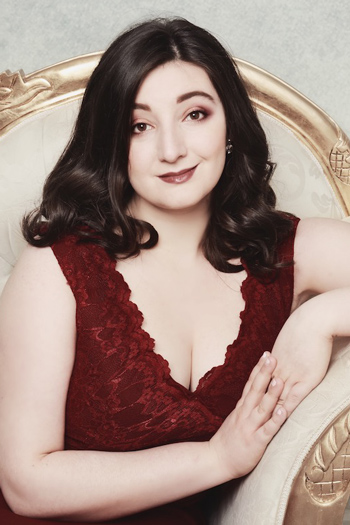
Beth Taylor
Mezzo-Soprano
Lauded for her “dark and focused” voice, “sensational coloratura”, “spectacular singing” (The Guardian) and the “intriguing depth” (MusicOMH) of her portrayals, the young Scottish mezzo-soprano Beth Taylor is establishing herself at the world’s most important opera stages and concert halls.
In the 2022/2023 season, Beth makes her role debut as Arsace in Rossini’s Semiramide at the Deutsche Oper Berlin; her house debut at the Opernhaus Zürich as Giuliano Gordio in Cavalli’s Eliogabalo, her debuts at the Berlioz Festival in La Côte-Saint-André as Ursule in Béatrice et Bénédict, at the Théâtre de Beaulieu in Lausanne as the contralto soloist of Mozart’s Requiem and at the Gulbekian in Lisbon as the contralto soloist of Beethoven’s Missa Solemnis conducted by John Nelson.
In the last three years, the mezzo-soprano has made important debuts at prestigious venues: In summer 2022, Beth made her acclaimed debut at the Glyndebourne Festival as Bradamante in a new production of Alcina. Following her house debut as La Cieca in La Gioconda, she made her debuts as Erda in Das Rheingold, Erste Norn in Götterdämmerung and Schwertleite in Die Walküre in the Deutsche Oper Berlin’s new Stefan Herheim Ring cycle under the musical direction of Sir Donald Runnicles. She also sang her first Falliero in Rossini’s Bianca e Falliero in a new production at the Oper Frankfurt, where she made her house debut as Dardano in a new staging of Handel’s Amadigi di Gaula. At the Concertgebouw Amsterdam, she performed Argia in the first performances of Giacomelli’s La Merope in modern times with La Cetra and Andrea Marcon, while at Theater Basel Beth sang the contralto solo part in a staged version of Bach’s Matthäuspassion.
Other recent engagements have led her to Madrid and Basel as Cornelia in Giulio Cesare under the baton of Andrea Marcon, to the Nancy Opera House in her role debut as Bradamante in a new production of Alcina led by Leonardo Garcia Alarcon, to the Concertgebouw Amsterdam in Mozart’s Krönungsmesse KV317, to the Aix-en-Provence Festival, where she made her festival debut in a new production of Rihm’s Jakob Lenz, to the New Generation Festival in Florence, where she appeared as Marcellina in Le nozze di Figaro, to the Opéra de Lyon as Melanto, Anfinomo and Fortuna in Il ritorno d’Ulisse in patria, to the Longborough Festival as Arnalta in L’incoronazione di Poppea, to the Iford Arts Festival as Rosmira in Partenope, to the Opéra de Lyon as La Reine/Le Coucou/Le Chat in Respighi’s La belle au bois dormant, to the Grimeborn Opera Festival as Fox/Dog/Hen in The Cunning Little Vixen and to the Fife Opera as Olga in Eugene Onegin.
Beth Taylor is a graduate of the Royal Conservatoire of Scotland and The Open University. She is currently refining her technique under the tutelage of Jennifer Larmore and Iain Paton. Beth has participated in masterclasses with renowned artists such as Sarah Connolly, Susan Graham, Sir Thomas Allen, Sophie Daneman and Dame Emma Kirkby.
She is the winner of the 2022 Elizabeth Connell Award, 3rd prize winner of the 2019 Wigmore Hall Competition and the winner of the 2018 Gianni Bergamo Classical Music Awards.
-
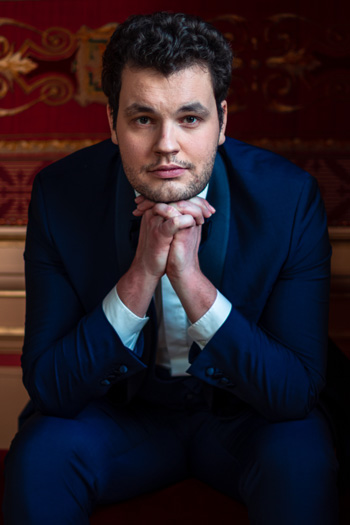
Julien Henric
Tenor
Born in Lyon, Julien Henric studied theater and opera singing in his hometown. In 2018, he was named révélation lyrique by ADAMI and won three prizes at the Concours Jeunes Espoirs Raymond Duffaut. Continuing in this vein, he won 2nd prize and the melody prize at the Concours International des Symphonies d'Automne de Mâcon the following year. He graduated from the CNSMDL in 2020 and immediately joined the Jeune Ensemble of the Grand Théâtre de Genève for the 20-21 and 21-22 seasons, two first seasons marked by great artistic encounters. In 2022, he also won the 1st French Melody Prize and 3rd Opera Prize at the Concours International de Marmande.
Julien Henric has appeared at the Festival International d'Art Lyrique d'Aix-en-Provence and the Cologne and Hamburg Philharmonic Orchestras in Norma (Flavio); at the Opéra National de Paris in Hamlet (Marcellus); at the Auditorium National de Musique de Madrid in Faust et Hélène (Faust); at the Théâtre des Champs-Élysées ; at Opéra de Rouen in Rigoletto (Borsa) and Romeo et Juliette (Tybalt); at the Festival d'Été des Nuits Lyriques de Marmande in La Traviata (Alfredo); and at Barcelona's Gran Teatre del Liceu, Opéra National de Bordeaux, Opéra Royal de Versailles and the Ravenna Festival in Don Giovanni (Don Ottavio) and Cosi Fan Tutte (Ferrando).
Over the years, he has worked with renowned directors such as Calixto Bieito, Mariame Clément, Ulrich Rasche, Daniel Kramer and Krzysztof Warlikowski. He also collaborates with great conductors such as Marc Minkowski, Stefano Montanari, Antonino Fogliani, Riccardo Minasi and Pierre Dumoussaud.
Julien Henric's 2023-2024 season is marked by numerous debuts: at the Bergamo Festival in Lucie di Lammermoor (Arthur Bucklaw), at the Opéra d'Avignon in The Magic Flute (Tamino), at the Opéra National du Rhin in Guercoeur (Heurtal), at the Olympia-City of Athens Music Theatre "Maria Callas" for Pénélope (Ulysse), at the Opéra de Saint-Etienne for Beethoven's 9th Symphony, and at the Opéra Orchestre National de Montpellier for a gala concert in tribute to Maria Callas, as well as at the Festival d'Auvers-sur-Oise in Rossini's Petite Messe Solenelle. He is also back to sing at the Opéra National de Paris in The Exterminating Angel (Lucas), as well as at the Grand Théâtre de Genève in Don Carlos (Le Comte de Lerme/Un Hérault) and in Anna Bolena (Sir Hervey).
-
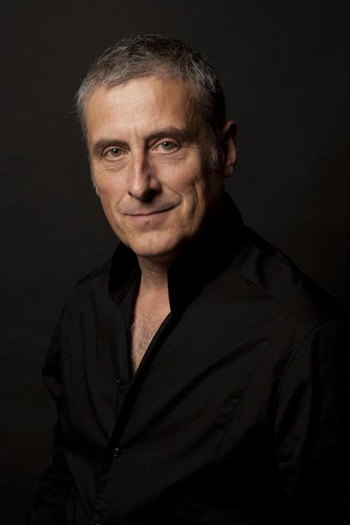
Vincent Le Texier
Baritone
After earning a diploma in Fine Arts, Vincent Le Texier studied voice under Udo Reinemann before entering the Paris Opera’s Ecole d'Art Lyrique.
He has sung the baroque repertoire, Mozartian roles (Leporello, Don Giovanni, le Comte, Alfonso), 19th century opera (Il Barbiere di Siviglia, Der Freischütz, La Damnation de Faust, Faust, Carmen, Les Contes d’Hoffmann, La Bohème...), 20th century opera (Gurlitt’s Wozzeck, Capriccio, Dallapiccola’s Il Prigioniero...), and premiered the works of many contemporary composers, both in France and abroad.
He has a passion for French Melody and Lieder, and regularly performs recitals.
He has sung his favourite roles on major international stages (Golaud in Pelléas et Mélisande, the Four Villains in Les Contes d’Hoffmann...), and important dramatic roles (Scarpia in Tosca, Der Fliegende Holländer, Philippe II in Don Carlo, Rautavaara’s Rasputin). He has also played Wozzeck and Jochanaan (Salomé) at the Paris Opera. His repertoire also includes rarer works: Simone (Zemlinsky’s Eine Florentinische Tragödie), Petrus (Orff’s Der Mond), Jaroslav Prus (The Makropulos Affair), Pandolfe (Massenet’s Cendrillon). He premiered as Saint François d'Assise at Salle Pleyel, conducted by M.-W. Chung, and then in Madrid.
He has played Scarpia in Bern, Dikoj (Katya Kabanova), Tchelio (The Love for Three Oranges), Don Estoban (Der Zwerg) and Golaud at the Paris Opera, Jochanaan in Liege, Sao Paolo and Essen, Créon (Cherubini’s Médée) at the Théâtre des Champs Élysées, Martin’s Golgotha in Amsterdam, the title role of Der Fliegende Holländer in Barcelona, Eumée (Fauré’s Pénélope) at the Théâtre des Champs-Élysées and Don Estoban (Der Zwerg) in Munich. At La Monnaie, he has sung the title role in Don Quichotte, Créon (Cherubini’s Médée) and Gessler (Rossini’s William Tell) in concert. He has also appeared as Bernard Baer (in the world premiere of Philippe Hurel’s Les Pigeons d’Argile) in Toulouse, Ruggiero (La Juive) at the Lyon Opera and Don Iñigo Gomez (L’Heure Espagnole) at La Scala.
More recently, he has sung at the Lille Opera for the premiere of A. Lavandier’s opera Premier Meurtre , Nilakantha (Lakmé) at the Tours Opera, Eumée (Pénélope), Harasta (The cunning little vixen) at the Théâtre de la Monnaie, Gepetto (Pinocchio) at this same theater and at the Aix-en-Provence Festival and in Dijon, Messiaen's Saint-François d'Assise in Japan and Le Bailly (Werther) in Vichy, Arkel (Pelléas et Mélisande) at the National Opéra du Rhin, Basilio (Barbiere di Siviglia) in Saint-Etienne, Nick Shadow (Rake's Progress) in Nice, Barbe-Bleue (Dukas's Ariane et Barbe-Bleue) in Toulouse,The General Boum (La Grande Duchesse de Gérolstein) in Köln the medecin (Inondation) at the Paris Opera Comique,the Title role of Massenet's Don Quichotte in Saint-Etienne,Salieri (Mozart and Salieri) in Toulon, Aye (Akhnaten) in Nice, Arkel (Pelléas et Mélisande) in Montpellier, in Modena and in Piacenza, Barbe-Bleue (Ariane et Barbe Bleue) in Nancy, le Bailli (Werther) in Lausanne, Bartolo (Nozze di Figaro) in Saint-Etienne, Balthazar (la Favorite) in Bordeaux.
Among his projects, the Cardinal Campeggio (Henry VIII) in Brussels, Luther/Crespel (Les Contes d'Hoffmann) at the Paris National Opera.
Hector Berlioz
Roméo et Juliette, op. 17
Grammy award-winning American conductor John Nelson is one of the unequivocal names of modern-day music and is considered an authority on the interpretation of the works of Hector Berlioz. His full recording (2017) of Berlioz’s Les Troyens earned him the highest praise, and he is now returning to the Grand Auditorium for a much-anticipated reading of Romeo and Juliet, at the head of the Gulbenkian Choir and Orchestra. About Berlioz’s music, the conductor says that it continues to sound new, “surprising us at every inflection with an unspeakable beauty”.
Sponsor Gulbenkian Music
The Calouste Gulbenkian Foundation reserves the right to collect and keep records of images, sounds and voice for the diffusion and preservation of the memory of its cultural and artistic activity. For further information, please contact us through the Information Request form.
